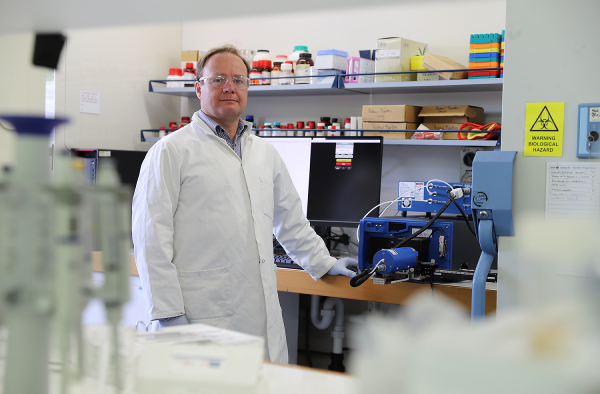What is metabolomics?
Metabolomics is the measurement of a wide range of different classes of small molecules (metabolites) and the use of statistical tools to analyse and interpret the data. It is a powerful tool for understanding biology and developing new hypotheses.
Biological systems are regulated by a complex interplay between a genetic blueprint and the environment. While genes provide a basis for what can happen, what genes are actually used and to what extent is determined by the interaction between genes and environment. This leads to the phenotype, or what has actually happened.
Small molecules, also known as metabolites, play a major role in determining biological response, and as the end products of the DNA-RNA-protein-metabolite cascade, are also highly informative about how a biological system (e.g. a cell, plant or human) responds in different situations.
By measuring a wide range of metabolites it is possible to get an overview of what is happening to a biological system, and from this develop hypotheses about mechanisms. In this sense, metabolomics is a hypothesis-generating tool, and useful for expanding understanding of how biological systems work and interact.
Metabolomics can also be used to determine composition, and in food and nutrition research can be used to find compositional differences which can be used to better understand products, effects of processing or find biomarkers that are specific for particular foods.
Metabolomics is a branch of analytical chemistry and requires the use of advanced analytical techniques to detect and measure metabolites. At AgResearch we use a number of different mass spectrometers to measure metabolites in samples.
